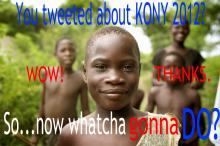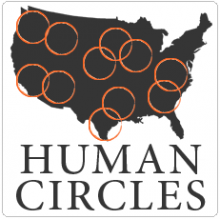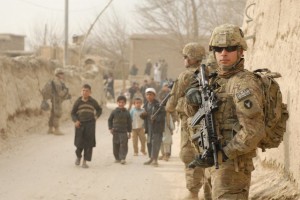Advocacy
TAMAR’S LIFE COULD have been different. A princess of David’s kingdom, she would have married into a wealthy family. But that all changed with the only recorded event of her life, described in 2 Samuel 13: A family member forced himself on her, then turned her out of his room. She cried aloud for all to hear, but the one person who did hear, her brother Absalom, counseled her to not take what happened “to heart.”
Rarely preached from the pulpit, this is a story that needs to be heard, because what happened to Tamar happens to one in three women and girls today. They are our mothers, sisters, aunts, daughters, selves—women and girls harmed by violence and silence. Worldwide, violence against women and girls takes many forms: sexual violence, sexual harassment, trafficking, “honor killings,” and other forms of murder. Such violence distorts the image of God that is in all of humanity. Victimization is never God’s will—fullness of life is. The church needs to help create intentional safe spaces so that healing can begin.
On Feb. 14, 2013, a movement of grassroots, national, and international organizations in more than 170 countries will take part in One Billion Rising, a day of action to reveal the collective strength and solidarity of those who demand an end to violence against women. Initiated by V-Day, the advocacy group founded by Vagina Monologues playwright Eve Ensler, this event invites the world to rise up to stop violence toward women and girls.

BALTIMORE — The Catholic bishops gathered here for their annual meeting couldn’t agree on a statement on the economy on Tuesday morning, but with a unanimous voice vote that afternoon they easily backed a measure to push sainthood for Dorothy Day, whose life and work were dedicated to championing the poor.
Indeed, it was a remarkable moment for the reputation of Day, one of the most famous figures in 20th-century Catholicism.
Born in Brooklyn in 1897, Day lived a bohemian life in New York City in the 1920s while working as a leftwing journalist. She endured a failed marriage, a suicide attempt, and had an abortion when suddenly, after the birth of her daughter, she converted to Catholicism.
That decision confounded her literary friends but launched her on a new path of activism and piety.
THE RED, RUN-DOWN, two-story frame house on Morris Avenue in the West Bronx that houses the Picture the Homeless offices looks much like those around it, except for the organization’s blue banner that hangs from the porch. The youths (there are older members too) who log in to their homeless blogs and look for jobs on the computers upstairs, surrounded by images of Zapata and the Selma freedom marchers, are mainly black and Latino, and they could be almost any of the young people you see on the street. Picture the Homeless is seamlessly embedded in this New York City neighborhood, where the new poor from Africa and South Asia join the long-established poor from Puerto Rico and the Dominican Republic.
Picture the Homeless (PTH) combines social action, advocacy, outreach, and community and is run almost exclusively by homeless and formerly homeless New Yorkers. The organization’s name references the importance of challenging widespread stereotypes about people who are homeless. “Don’t talk about us; talk with us” is a PTH slogan, and it claims as a founding principle that “in order to end homelessness, people who are homeless must become an organized, effective voice for systemic change.”
Kendall Jackman, in her 50s, one of PTH’s housing organizers, lives in a women’s shelter not far from Morris Avenue. The former postal worker from Brooklyn’s Bed-Stuy neighborhood—“No matter where I live, I will always be a Bed-Stuy girl,” she said—lost her housing two years ago when the building she was living in was foreclosed on.
“Of the 72 women in my shelter, 69 of us either work or go to school,” Jackman said. “With no low-income housing available, shelters are now the homes of the working poor.”

I struggle to know how much is enough. I hear about Joseph Kony and the many children he’s exploited as child soldiers. I get angry, discouraged. I write about it, talk to friends about it.
And then my life keeps moving and I don’t think about it again for days or weeks.
Trayvon Martin, an unarmed teenager, is gunned down on the street. The nation is divided, both outraged about the killing and fearful of the threat to gun rights and laws of self-defense.
And then we talk about something else.
Today’s issues include the nuns going head-to-head with the Vatican, as well as stories about still more preachers being busted for spousal abuse, or expelled from their jobs because of their sexual orientation.
Tomorrow it will be something else.

The New York City Human Circle will be replicated throughout across the nation, when faith leaders host Human Circles as members of the Sojourners National Mobilizing Circle, which is bringing together faith and community leaders to organize faith-rooted actions in their communities.
The purpose of these circles is not only to lobby for the poor but also with them.
Let’s face it — while lawmakers are picking their own battles in Washington, they aren’t fighting on the ground in Afghanistan. Winning elections has become more important than implementing winning foreign policy strategies that would end the war and bring our service men and women safely home.
And it’s my generation that’s being sacrificed.
One little known fact about Houston is that it was the only major city in the South to integrate nonviolently. A meeting was held in a downtown hotel with key African-American leaders -- preachers, business owners, barbers, undertakers -- and the business and political power players from Houston's white establishment. The meeting determined that Houston would integrate silently and sit-ins would end -- no newspaper articles, no television cameras. They were simply going to change the rules of the game; and they did without any violence. It was a meeting that represented how Houston politics happen: provide a room, bring together community leaders, business interests and politicians, and get a deal done. Such meetings certainly make for strange gatherings, but at critical junctures in our city's history this mixture has proven to be a winning cocktail.
More than 140 prominent Protestant leaders from 12 Latin American countries have signed an "open letter to the Christian churches of the United States," asking American Christians to stand with "the most vulnerable members of US society" who would be affected by proposed budget cuts to the social safety net.
Citing the Circle of Protection as a positive Christian witness, the signers also expressed their dismay. "We view with deep concern recent decisions in the United States that will add to the suffering of the most vulnerable members of US society," the letter read. It was signed by a broad array of Latin American religious communities, including leaders of the Latin American Council of Churches, the United Bible Society of Latin America, evangelical councils and alliances in Peru, Ecuador, Honduras, Argentina, Brazil, Bolivia, and Uruguay, the Fellowship of Evangelical Churches (CONELA), the Association of Reformed and Presbyterian Churches of Latin America (AIPRAL), Micah Network, Indigenous Association of Peruvian Amazonia, and the Latin American Biblical University in Costa Rica.
 If you live in Kentucky, Nevada, or Ohio and listen to Christian or country radio, you'll be hearing some of Sojourners' new radio ads calling for legislators to remember the least of these during this default crisis. For those of you who haven't completed your migration over to Google+, you might also start to see some ads popping up on your Facebook page in the next few days asking you to speak out on behalf of those in need. The reason we are running these ads is simple: The rich have lobbyists while those in need don't, and that's why Christians need to speak out and form a "Circle of Protection." If you don't live in one of these areas (or aren't listening to Christian or country radio) you can listen to the ads here.
If you live in Kentucky, Nevada, or Ohio and listen to Christian or country radio, you'll be hearing some of Sojourners' new radio ads calling for legislators to remember the least of these during this default crisis. For those of you who haven't completed your migration over to Google+, you might also start to see some ads popping up on your Facebook page in the next few days asking you to speak out on behalf of those in need. The reason we are running these ads is simple: The rich have lobbyists while those in need don't, and that's why Christians need to speak out and form a "Circle of Protection." If you don't live in one of these areas (or aren't listening to Christian or country radio) you can listen to the ads here.
Shakespeare said a rose by any other name would smell as sweet. Maybe, but a Stink Rose by any other name (say... garlic?) might get more play.
On July 19, Campus Crusade for Christ announced its plan to officially change its name to Cru in early 2012.
Brown v. Board of Education had not yet been fought in the Supreme Court when Bill and Vonetta Bright christened their evangelical campus-based ministry Campus Crusade for Christ in 1951. The evangelical church context was overwhelmingly white, middle class, and suburban. The nation and the church had not yet been pressed to look its racist past and present in the face. The world had not yet been rocked by the international fall of colonialism, the rise of the Civil Rights movement, the disillusionment of the Vietnam War, the burnt bras of the women's liberation movement, the fall of the Berlin Wall, or the rise of the Black middle class (more African Americans now live in the suburbs than in inner cities). In short, theirs was not the world we live in today. So, the name Campus Crusade for Christ smelled sweet. Over the past 20 years, though, it has become a Stink Rose ... warding off many who might otherwise have come near.
Today is another intense day of politics at the White House. The debt default deadline is fast approaching. The stakes for the nation are high as politicians can't agree on how to resolve the ideological impasse on how to reduce the deficit before the nation defaults on its financial obligations.
Yesterday, before Congressional leaders were due at the White House for critical negotiations, I, along with 11 other national faith leaders, met with President Obama and senior White House staff for 40 minutes. We were representing the Circle of Protection, which formed in a commitment to defend the poor in the budget debates. Sitting in the Roosevelt Room of the White House, we opened in prayer, grasping hands across the table, and read scripture together. We reminded ourselves that people of faith must evaluate big decisions on issues like a budget by how they impact the most vulnerable.
At the Wild Goose Festival in North Carolina last weekend, I was able to speak with Anna Clark, author of Green, American Style, president and founder of EarthPeople, a green consulting firm, and a contributor to Taking Flight: Reclaiming the Female Half of God's Image Through Advocacy and Renewal. Anna has a heart for equipping churches to make small and big changes for the sake of creation care and stewardship of the earth's resources. How can Christians do this, you ask? Read our conversation to find out.
We met 10-year-old Noor Al-Abid in November during our first visit to Gaza.
Yesterday, the leaders of more than 50 Christian denominations and organizations drew a line in the sand of the budget debate, and asked our political leaders to do the same.
Weddings. T-Shirts. Taxes. Here's a little round up of links from around the Web you may have missed this week:
- Invite the homeless to your wedding as guests of honor.
- Sometimes you just have to outsmart your child with a little reverse lexicology.
- These photos of Chinese artist Liu Bolin will blow you away. The Invisible Man.
- Looking into the past, from the present.
- Do you believe in living more with less? Do you design T-shirts?
- Did you finish your taxes? Check out your federal taxpayer receipt.
- High-school seniors predict their future.
- The Post Office accidentally released a State of Liberty Stamp that shows the half-size Las Vegas replica.
- We continue to pray, fast, and act for the budget. Join us.
Since our fast began this past Monday, I've been re-reading one of the classic books on spirituality by my friend Richard Foster,
Yesterday morning, Tony Hall, David Beckmann, Ritu Sharma, and I began a water fast because of what I call "selectively cruel" budget
